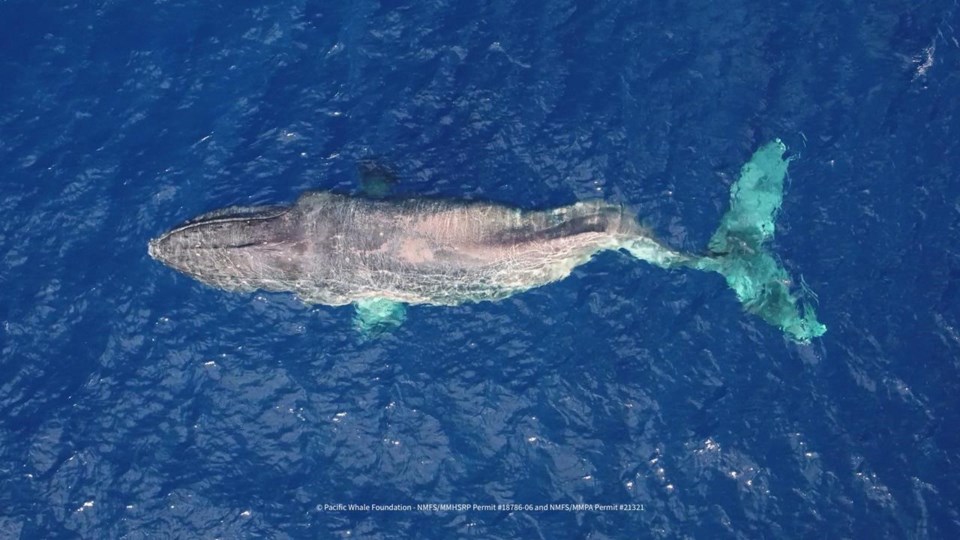A humpback whale with a severe spinal injury used nothing but its pectoral fins to swim 4,800 kilometres between British Columbia and Hawaii, in what a researcher says is a heartbreaking example of a ship strike.
Janie Wray, CEO and lead researcher for B.C. Whales, says it is likely to be the last journey for the whale known as Moon.
“She will pass. There is no way that she is going to survive this and to be honest, I hope she passes soon because I think she is probably in a lot of pain and she is suffering,” said Wray.
Moon swam from B.C. to Hawaii in less than eight weeks after a suspected strike left the whale with its back deformed into an S.
Wray hopes Moon’s story will alert boaters to the danger that ship strikes pose to whales.
Wray, who is also co-founder of the North Coast Cetacean Society, says the organization's drone caught sight of Moon travelling past the Fin Island Research Station by the north coast of B.C. on Sept. 7. They immediately noticed something wrong.
“And right away, we just recognized like, 'Oh, my God. What has happened to this poor whale?' You could see from her dorsal fin to her tail was curved into an S shape,” said Wray.
“So she's literally just using her arms, but for her, it's her pectoral fins, to move. As far as we can tell, she is not using her tail at all."
Moon was spotted again off B.C. on Oct. 11, then on Dec. 1 by U.S. researchers for the Pacific Whale Foundation off the coast of Maui, Hawaii.
Wray says researchers believed Moon had been hit by a large ship, and the whale's plight left her almost speechless.
“I was in awe of her. The amount of respect for her was tremendous, but it also just broke my heart because I recognize the will and the strength that pushed her to do that migration using just her pectorals,” said Wray.
Moon appeared skinny and covered in whale lice, another indication of her poor condition, said Wray.
Wray says Moon undertook what was likely a painful journey because of "its tradition, its culture."
"She was most likely born in Hawaii and her mother would have migrated to the feeding ground of B.C. with her when she was a calf and that tradition and that knowledge just passed on,” said Wray.
B.C. whale researchers had been familiar with Moon for years before her injury, spotting her in late fall around the feeding grounds of northern B.C.
In 2020, Moon was seen with a calf on her side, said Wray.
B.C. Whales said in an online statement that vessels of all sizes could pose a threat to whales.
Wray said humpbacks' movements are unpredictable compared to those of orcas, making it important that boaters learning to navigate familiarize themselves with their behaviour.
This report by The Canadian Press was first published Dec. 10, 2022.
This story was produced with the financial assistance of the Meta and Canadian Press News Fellowship.
Nono Shen, The Canadian Press



